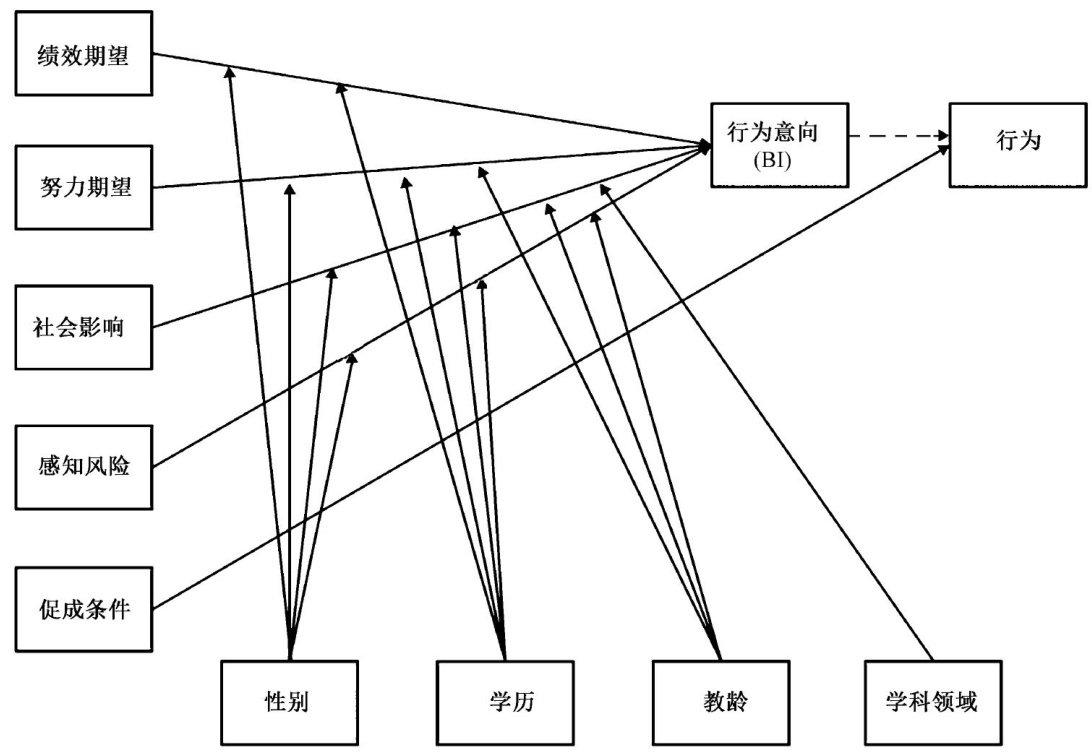人工智能赋能教学的接受度:关键因素识别与影响机制探究


打开文本图片集
[中图分类号]G434;G 442 [文献标志码]A [文章编号] 1005-0310(2025)03-0013-08
Abstract:As an emerging teaching paradigm,AI-enabled teaching has atracted much atention and has been widely adopted worldwide.As the primary facilitators of the teaching instruction,teachers’acceptance of AIenabled teaching directly affects the implementation efectiveness of this new approach.Drawing on the reality of China's higher education environment and integrating insights from international research,this study employs a mixed-methods approach combining questionnaires and in-depth interviews.Using the UTAUT model,this study comprehensively examines the acceptance of AI-enhanced teaching,ofering insights for the development and application of educational technology.The findings reveal significant diferences in teachers’atitudes and cognitive levels toward AI-enhanced teaching,influenced by a complex interplay offactors,including performance expectancy,effrt expectancy,social influence,facilitating conditions,and perceived risk.Among them, performance expectations,effort expectations,social influencesand facilitating conditions exhibit significant positive effects on teachers’acceptance of AI-enhanced teaching,while perceived risk exerts a negative impact. Moderating efects of gender and disciplinary fields were found to be non-significant.Based on the findings, effective strategies to increase the acceptance of AI-enhanced teaching are suggested.
Keywords: AI-enabled teaching;acceptance ; UTAUT model ; mechanisms of influence
0 引言
1956年,美国学者约翰·麦卡锡首次提出“人工智能”一词,标志着人工智能正式诞生。(剩余9716字)